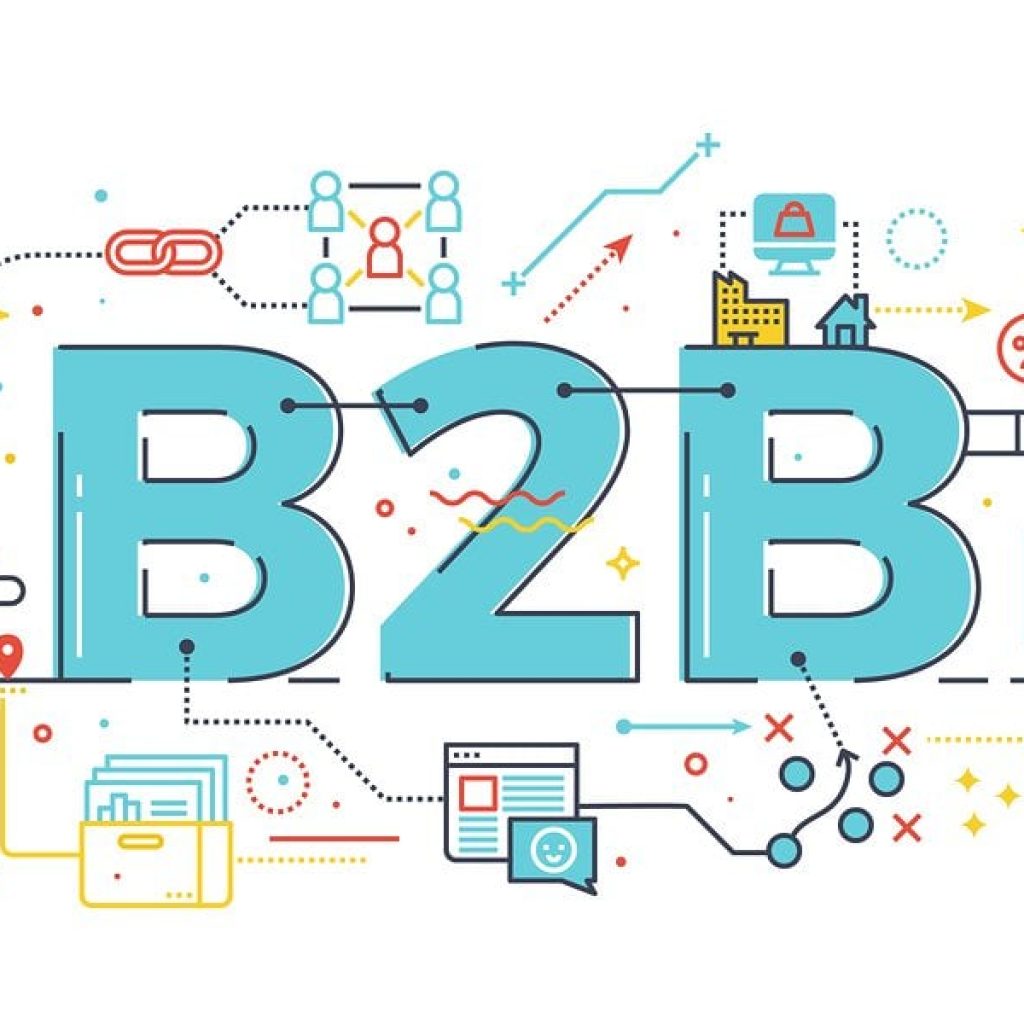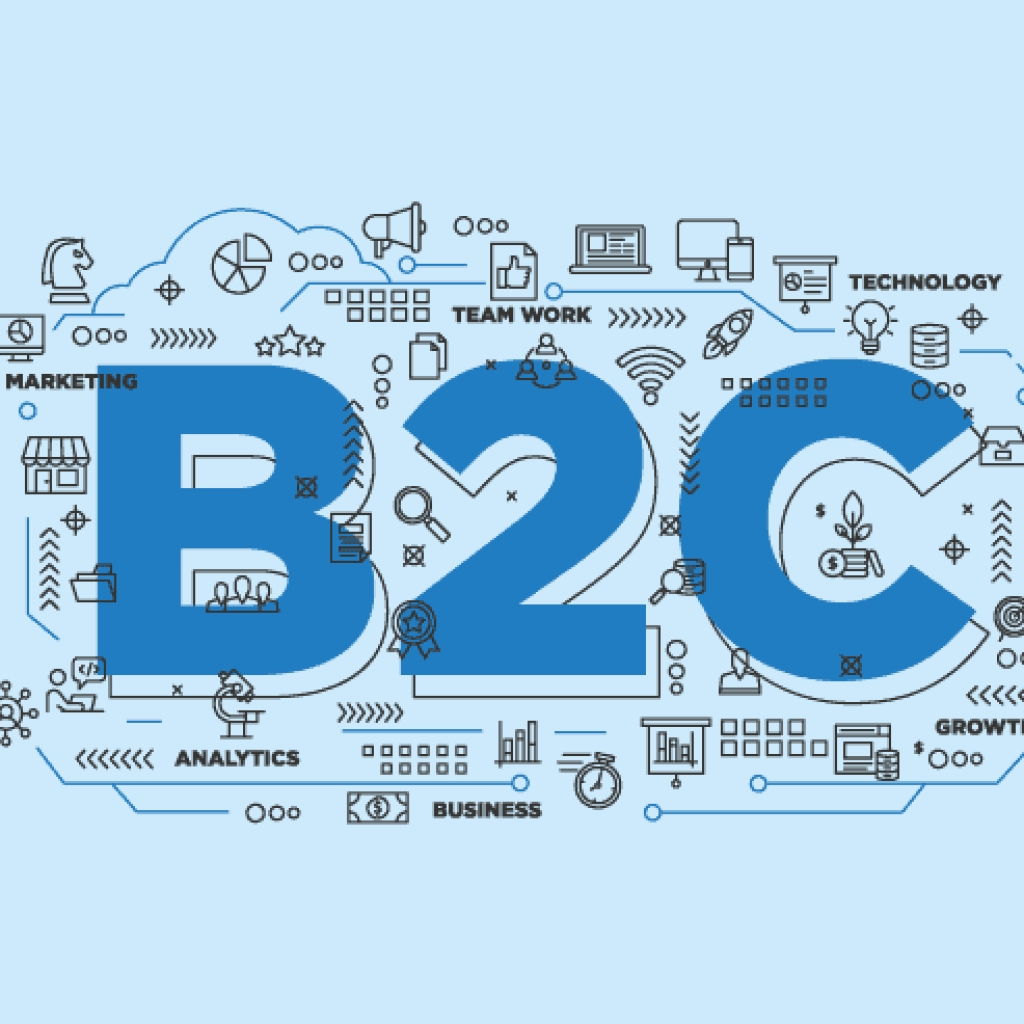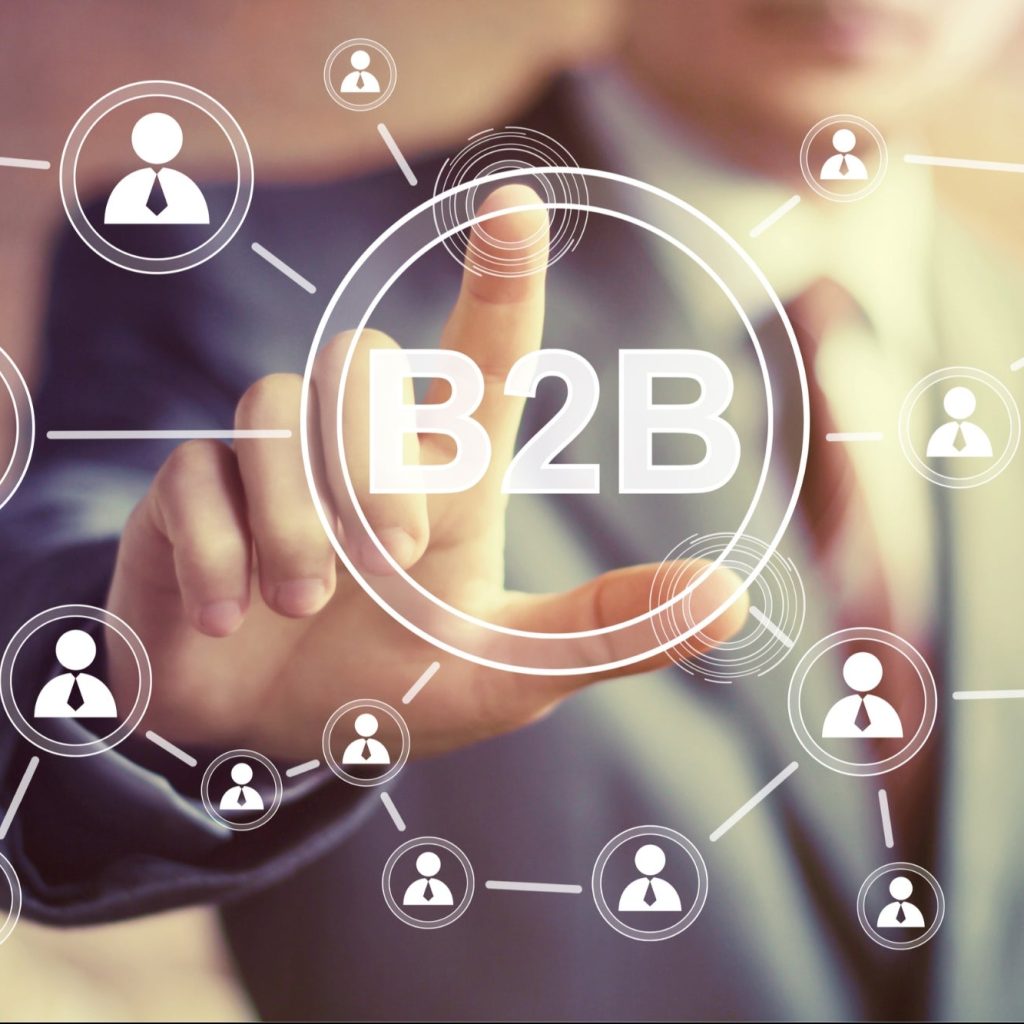B2B and B2C business models are things you are familiar with if you have experience in the field of digital marketing. But it’s possible that you’re not familiar with B2B and B2C marketing techniques. The majority of the time, business-to-business (also known as B2B) marketing concentrates on rational, process-driven purchasing decisions, whereas business-to-consumer (also known as B2C) marketing concentrates on emotional, subjective purchasing decisions. Although these marketing strategies share many characteristics, they engage audiences quite differently depending on the channel.
What distinguishes business-to-business transactions from business-to-consumer transactions?
B2B

Business-to-business is referred to as B2B. It refers to companies whose target market is other companies, so all of their marketing efforts are focused on the wants, needs, and difficulties of customers who are making purchases for their company rather than for themselves. Here are a few examples of B2B in action:
- A provider of recruitment software that offers HR departments hiring equipment.
- Firm that specializes in designing offices as interiors
- A marketing software service that provides marketing departments with content strategy, SEO, social media, lead generation, and related tools (sounds like a product we’ve used before…)
B2C

The acronym B2C means business-to-consumer. It refers to companies whose clients are regular consumers rather than business clients. As a result, every company’s marketing strategy focuses on the requirements, passions, and difficulties that people face daily. Several instances of B2C are provided below:
- A business that offers toothbrushes, toothpaste, and mouthwash to customers.
- Real estate company that deals in the rental and sale of houses to people, families, and students.
- Music website that offers customers premium music streaming subscriptions.
B2B versus B2C marketing
The primary areas where B2B and B2C marketing diverge are in their target audiences and methods of communication. B2B marketing is more concerned with developing relationships and demonstrating a product’s return on investment for a business customer than B2C marketing is with quick fixes and entertaining content.
What does this distinction entail in real life? Learn more about the differences between B2B and B2C marketing objectives and how to direct your strategy in the right direction by reading the items below.
B2B marketing strategies
1. In B2B marketing, ROI is important
While consumer audiences are more likely to be looking for deals and entertainment, B2B audiences are looking for efficiency and expertise. As a result, the B2B purchase process is frequently influenced more by reason and financial motivation. What is the product’s return on investment (ROI), in other words? How will this purchase benefit the company’s bottom line? After all, employees only spend money on items that will benefit their company financially.
B2B clients seek information
B2B clients frequently desire to project an image of being the decision-makers at work. But they need to have the right information about the products they’re looking at to make wise decisions. Here’s where B2B content marketing enters the picture: You can ensure that your audience makes a purchase decision they won’t regret by educating them about the industry and developing their professional skills in the process.
The content must be in-depth
B2B customers anticipate being “catered to” by the sales and marketing teams, unlike a B2C audience. To expand on the third tip mentioned above, feel free to include details in your content that a B2C buyer may deem unimportant or trivial. Consider the specifics of your product: What can it offer a company? What can’t it accomplish for a company? What information must the customer have to use your product successfully?
The chain of command is much longer for B2B marketers

In B2B settings, purchasing decisions frequently need to be approved by accounting, procurement, and department heads. B2B customers must refer every decision to someone else before any money changes hands, in contrast to individual B2C customers who typically make quick decisions about their purchases with the growing influence of their friends and family. This indicates that you market to everyone who can influence a purchase rather than just one person.
The B2B decision-making process is frequently much more drawn out
More lead nurturing is necessary for B2B marketing, and the user experience must be carefully considered. The procedure that a company goes through when evaluating its product is much more complicated because these decisions are meant to fulfil long-term goals for that company. When promoting to other companies, be patient and make content for them that focuses on the various phases of their buying cycle.
B2B purchase contract typically lasts months or even years
B2B transactions frequently involve ongoing relationships with the vendor; a company cannot simply return a product if it is unsatisfactory. Because of this, a client’s decision is much more important, and B2B marketers need to be aware of that. Think about the long-term initiatives that your target market will want to use the product for. When will the various features of the product start working? How will the needs of the user change over time?
B2C Marketing
A B2C customer who supports your brand may not be seeking a close relationship with it
The B2B audience seeks knowledge and the capacity to establish close ties with brands. Let’s just say that B2C clients aren’t all that into you. Although B2C customers can be just as devoted to your brand as business clients, their investment in you is probably not as substantial as your investment in them. Consider this when deciding how much content to send your former B2C clients, and be ok with those who follow you on Twitter but don’t read your blog.
Marketers are not permitted to use industry jargon
The simpler the voice of the brand, the better. The B2C community requires brands to be as relatable as possible, which calls for fewer buzzwords and (typically) a less formal demeanour. The industry jargon you and your coworkers use may show expertise to a business client, but it is very off-putting to a person. In actuality, 83% of customers prefer a casual tone in video content.
B2C purchases tend to be more sentimental

To some extent, every purchase is an emotional choice. Nowadays, people frequently purchase with their hearts rather than their heads. However, B2B customers still need to consider how their decisions will affect their business because they can only let so much emotion influence them. Contrarily, B2C customers rely much more on instinct when making purchasing decisions. These consumers don’t have to answer to anyone else when they make a purchase, so a brand that shares a motivational tale about a customer who benefited from the product may be sufficient to persuade them.
Requires a fun element
When purchasing for themselves rather than a company they work for, B2C customers are heavily invested in their enjoyment. Even though everyone wants products that make their lives easier, the average B2C audience is much more interested in entertainment than the average B2B audience. Use marketing to inform your target market for business, but also to amuse your consumer audience.
Also Read: Engage, Educate, and Entertain: The Benefits of Video Marketing
In conclusion
The biggest issue B2B marketers frequently face is a lack of content and the time necessary to produce it. This contrasts with B2C marketers, who would prefer to have a larger advertising budget and additional methods of product promotion. This has a big impact on how tactical executions are done. Marketing professionals must comprehend that lead generation effort that capitalise on the distinctions between B2B and B2C marketing will be more successful. However, despite the apparent differences, all marketing is ultimately P2P — person to person — regardless of which side of the B2B or B2C divide a marketer works on.
















